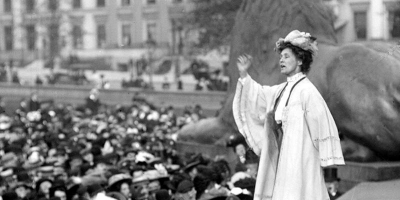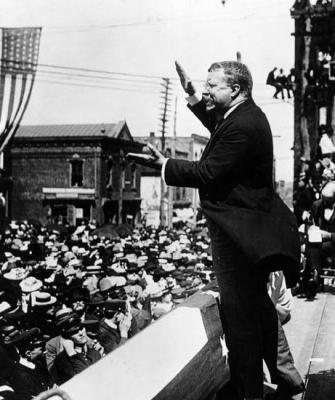WHAT IS THE MAIN IDEA OF ‘FREEDOM OR DEATH’ SPEECH?

Emmeline Pankhurst was an English political activist and a leading figure in the suffrage movement in Great Britain. Her tireless campaigning in the face of police brutality and failing personal health made her an icon of British politics. Let us look at one of her most influential public addresses titled, "Freedom or Death"
On November 13, 1913, British activist Emmeline Pankhurst gave one of the most influential speeches of the suffragette movement titled, Freedom or Death" at a meeting of the Connecticut Woman Suffrage Association in Hartford, Connecticut. U.S.
On this day, the founder of the Women's Social and Political Union (WSPU) took the stage to argue that women's liberation could only be achieved by civil war.
Sign of the times
One of the greatest political changes of the 20th Century was obtaining the vote for women; but behind this accomplishment lay decades of refusals by successive governments.
The long-standing campaign for women's suffrage began in 1865 but when years of peaceful protest and innumerable petitions failed to translate into political change, women took to the streets to rally for their right to vote. It was during this time that Emmeline Pankhurst. along with her daughters Christabel and Sylvia, came up with a public campaign of engagement and spectacle to gain media attention change public opinion, and influence the Parliament through (their motto) deeds and not words.
Freedom or Death
In her 1913 speech, Pankhurst addressed herself as a soldier on leave from the battle, since she was temporarily relieved from her prison sentence on account of what was popularly called the "cat and mouse act"
But her failing health could not derail her from utilising this occasion to speak on the need to fight against the injustices perpetrated on women by society. At the time working women she explained, were earning a meagre amount of two dollars a week: wives had no right on their husband's property and no legal say in the upbringing of their children. Girls were seen as marriageable at the age of 12 and divorce was considered to be an act against God: violence and assault on women rarely received any significant penalty, and above all, there was no legal framework that represented their gender in the constitutional setup. In this political environment, the right to vote, she insisted, was the first step towards getting political equality and attaining full citizenship.
The path to militancy Justifying the rise of the self-proclaimed militant suffragettes, she proclaimed "you cannot make omelettes without breaking eggs" The double standard of the society that reveres men as the harbinger of change and women as creatures to be domesticated has forced us down this road. The history of politics is a testament to the fact that one has to be more noisy" and disruptive to gain the media's attention and see their grievances addressed.
Prisoners (Temporary Discharge for Ill Health) Act 1913
This 1913 law, also known as the cat and mouse act, was especially passed to suppress the women's movement and allowed for the early release of prisoners who were so weakened by partaking in hunger strikes that they were on the verge of dying. Addressing this legislative move by the Government, she said "There are women lying at death's door... who have not given in and won't give in... they are being carried from their sick beds on stretchers into meetings. They are too weak to speak, but they go amongst their fellow workers just to show that their spirits are unquenched and that their spirit is alive, and they mean to go on as long as life lasts...either women are to be killed or women are to have the vote." (excerpt from Freedom or Death)
World War-l
Less than a year after this speech World War I broke out. The government released all imprisoned suffragists to join the workforce and support the war effort. It was only after the Representation of the People Act was passed in 1918 that property-owning British women over 30 were granted the right to vote.
Key takeaways from the speech
- One must never hesitate to fight for social good.
- Women's rights are human rights.
- Equality is the soul of liberty.
- It takes courage to challenge the familiar and resilience to succeed.
- Actions hold more meaning than words.
DID YOU KNOW?
- The colour scheme for the Suffragette movement was purple, white and green which stood for dignity purity and fertility.
- Pank-a-Squith was a pro women's suffrage board game created by WSPU in the early 1900s. The game's goal was to avoid all the pitfalls of suffragette life and get the right to vote.
- The Museum of London holds the diary entries, letters and sketchbooks written on toilet paper, passed between imprisoned suffragettes and eventually smuggled out of the prison building.
Picture Credit : Google
